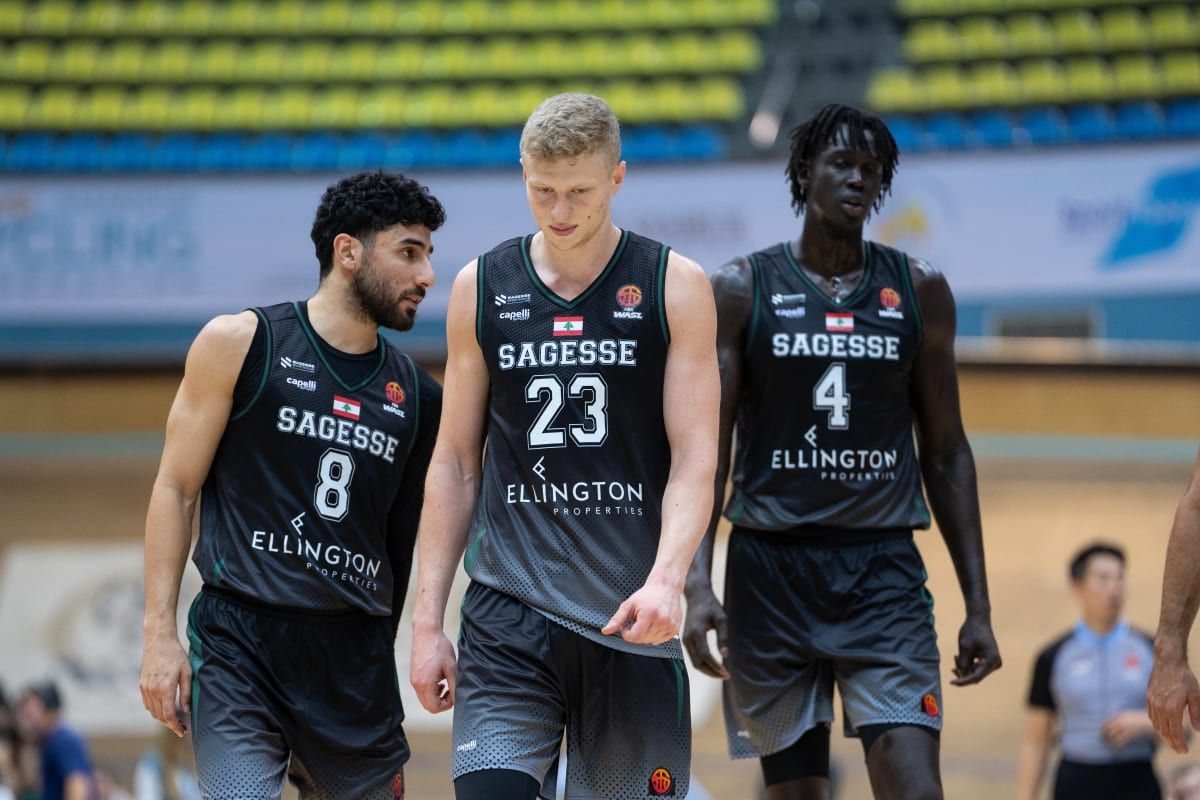
Accustomed to dominating Astana in Final 8 games, Sagesse took the hit this time in the regular season. Beaten 71–62 at the Saryarka Velodrome in the first WASL game ever played in Kazakhstan, the Greens suffered a third straight defeat, marking their worst start on the regional stage.
The night was meant to be historic—just not in the way Sagesse hoped. Under the roof of the Saryarka Velodrome, in front of over 2,400 fired-up fans, BC Astana delivered a perfect home debut in the FIBA WASL–West Asia League. On the other side, the Beirut club, already beaten by Shahrdari Gorgan and Al Riyadi, missed another opportunity and now stands at 0–3, backed into a corner in a competition that offers no forgiveness.
A new format, and Astana rises to the moment
Until this season, Astana participated in WASL through a VIP invitation, receiving an automatic Final 8 slot as Central Asia’s representative. The format changes reshuffled everything: the Kazakh champions must now grind through the regular season alongside Lebanese, Iranian, and Syrian powerhouses.
For their first home matchup under the new system, the Kazakhs showed no mercy. After being blown out in Tehran by Gorgan, they desperately needed a statement win to launch their campaign. Sagesse, who had beaten them twice in the Final 8 group stage (103–89 in 2024, 113–90 in 2025), arrived as the executioner. Astana turned that history into fuel.
An old rival strikes back
From the first quarter, the tone was set: 24–16 Astana, carried by a blazing Adas Juskevicius with 11 early points. Sagesse spent the whole night chasing. The Greens never managed to take control despite a few attempted comebacks, each smothered by a long-range bomb or a perfectly executed Kazakh sequence.
Robert Pan embodied both statistical and psychological revenge. The stretch-big tormented the Lebanese defense with 21 points, 5 rebounds, 4 assists, and a lethal 5-of-8 from deep. His last three, with forty seconds left, pushed the score to 71–59 and sealed the game. Around him, Alexandr Zhigulin (15 points, 7 rebounds), Juskevicius (13 points), and Askar Maykedin (10 points, 5 rebounds) imposed constant discipline and effectiveness.
Numbers that hurt
Beyond the final score, the stats tell the story of a low-voltage offensive night. Sagesse shot 39%, going 5-for-18 from three and 19-for-43 inside the arc. Astana shot 38% but fully embraced a perimeter-driven identity: 38 three-point attempts versus just 22 shots inside. Eleven threes made—11 daggers that repeatedly killed Lebanese momentum.
Individually, efforts weren’t enough to flip the game.
Ali Haidar posted 17 points, 3 rebounds, 3 assists, 3 steals.
Makur Maker logged a 12-point, 11-rebound double-double.
Erick Green added 10 points.
Two more Lebanese players stood out without changing the outcome:
Jad Khalil flirted with a double-double (9 points, 10 assists, 4 rebounds) and Youssef Khayat tallied 8 points, 10 rebounds, and 4 assists—active on both ends.
Sagesse out of rhythm
The issue wasn’t the stats—it was the soundtrack of the game: a passive tempo, no offensive spark at key moments, and inability to stack defensive stops to fuel runs. A less-than-healthy Tony Carr weighed heavily. Still dealing with an undisclosed injury, the American scorer tried to play but couldn’t reach his usual level: just 7 minutes, 2 points, 3 rebounds, one assist—clearly far from game-ready.
For a club that re-entered the continental map through Final 8 heroics, the contrast is stark. After Gorgan and the derby loss to Al Riyadi, this long trip east looked like the perfect reset button. Instead, it sounded the alarm.
Reminder: WASL is unforgiving
The FIBA WASL–West Asia League is no longer a testing ground—it’s an unofficial championship of regional heavyweights, where every away game feels like playoffs. Between Iranian giants, Lebanese contenders, and rising outsiders like Astana, any slow start is dangerous. At 0–3, Sagesse makes its path significantly harder.
International break, internal questions
The season now pauses for the first Asian qualifiers window for the FIBA 2027 World Cup (Nov. 27 – Dec. 1). For Sagesse, the break cuts both ways: no immediate chance to rebound, but time to dissect this collapse.
With offense to restructure, defensive intensity to recover, and Tony Carr’s role to reassess once healthy, Joe Ghattas and his staff have plenty to address. They also need to rediscover the trademark "green fortress" energy that defined their Final 8 runs—turning big nights into statements.
In Astana, Sagesse didn’t just lose a game or its psychological edge over a familiar opponent—it recorded the worst start in its WASL history. Now, the club must decide what comes next: will 0–3 sink the season or spark a Lebanese-style revival? In this league, Final 8 memories don’t matter anymore. Only what you climb back from does.

Comments